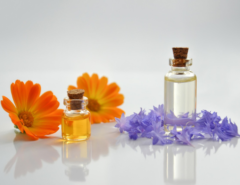Pre-teens (6-12 years) and teens (13-19 years) make up about 17 percent of cases managed by the Maryland Poison Center (MPC) annually. Although it’s a small percentage, it is important during these formative years that they make choices that benefit their health. During these early years, pre-teens are introduced to substances. Studies suggest you should start talking with children about substances when they are an early pre-teen. Below, we will look at different substances we manage for pre-teens and teens at the MPC, as well as other substances they abuse.
Common Substances Managed by the MPC
Common substances we manage at the MPC for pre-teens and teens include over-the-counter medicines and prescription medicines. We offer you the following tips when talking to your pre-teen and/or teen about medicines:
- Read the label every time a medicine is taken
- Take the dose as directed on the label (e.g., how much and how often to take)
- Store medicines up, away, and out of sight if there are younger siblings in the home
- Do not take medicines from friends and do not share medicines they use with their friends
Over-the-Counter Medicines
Over-the-counter (OTC) medicines are available to purchase without a prescription from a health care provider. They can easily be purchased by pre-teens and teens and are found in most homes. A common misconception about OTC medicines is that they are “safer” than prescription medicines. But when used in the wrong way or wrong amount, they can be just as harmful as prescription medicines and other drugs of abuse.
Analgesics, commonly known as pain relievers, are the most common substance the MPC manages cases about for both pre-teens and teens. These are medicines such as Advil (ibuprofen) or Tylenol® (acetaminophen). Most often, these cases are dosing mistakes, such as taking the wrong dose or taking doses too close together. However, there are cases where pre-teens and teens are using them to harm themselves.
Antihistamines are a type of medicine commonly used to treat allergies. They were in the top five most common substances that the MPC managed cases for the past several years with both pre-teens and teens. Similarly to pain relievers, cases with antihistamines are often dosing mistakes. But there are some cases where antihistamines are being used to get high or for self-harm.
We recommend the OTC Medicine Safety materials from Young Minds Inspired. You can download lesson plans, digital resources such as videos and games, and more! For more information on OTCs, visit our previously posted OTC Medicine Safety blog.
Prescription Medicines
Prescription medicines are ones that you can only get from a pharmacy after a health care provider prescribes it for you.
Antidepressants are commonly prescribed in this age group to help treat depression and other mental health conditions. The Food and Drug Administration (FDA) warns that there is a side effect of increased suicidal thinking and behavior in some individuals who take this kind of medicine. Learn about warning signs of suicide from the American Foundation for Suicide Prevention. Most of the cases involving antidepressants in pre-teens and teens are dosing mistakes. However, there are some cases of them using antidepressants to harm themselves.
Medicines used to treat Attention-Deficit Hyperactivity Disorder (ADHD) are another common type of medicine we manage cases about with pre-teens and teens. Like antidepressants, ADHD medicines are commonly prescribed in this age group. Most of the cases involving ADHD medicines in pre-teens and teens are dosing mistakes. They think that taking more than prescribed will help them focus better than just taking one dose, but that is not true.
Other Substances Used by Pre-Teens and Teens
While alcohol, cannabis, and inhalants aren’t in the top five most common substances we manage at the MPC, they are still substances being used by pre-teens and teens. As we mentioned in the beginning, it’s important to start talking to children about substances when they are an early pre-teen. We offer you the following tips when talking to your pre-teen and/or teen about substances of abuse:
- Use trusted sources of information when speaking with your children
- Be honest with pre-teens and teens, they will likely fact check the information you provide
- Encourage open communication and asking questions with you
Alcohol
According to the Centers for Disease Control and Prevention (CDC), alcohol is the most commonly used substance among young people in the US. Despite that, rates of underage drinking have been declining the past few decades. Underage drinking is dangerous and can lead to misuse of other substances, such as those listed here in this blog.
Cannabis
As of this blog post’s publication, cannabis is only legal medically in Maryland. There are many states surrounding Maryland that have legal recreational cannabis. Later this year (2023), recreational cannabis will become legal in Maryland for individuals 21 years of age and older. This will likely increase the number of homes where cannabis will be available to pre-teens and teens.
According to the CDC, in 2019, 4 in 10 high school students reported using cannabis in their lifetime. Using cannabis as a child can cause harm to the brain, as it is still developing until 25 years of age.
Inhalants
Inhalants are products that are misused by sniffing or inhaling them in efforts to get high. Common products that pre-teens and teens may inhale include canned dust remover, glue, paint, and the nitrous oxide from cans such as whipped cream. These products are in most homes and harmless when used in the right way. The most recent study done in 2015 found that about 684,000 adolescents aged 12 to 17 used inhalants in the past year. Although not as common as other substances we talked about today, inhalants are harmful and sometimes even deadly.
If your teen, or anyone else, has used something in the wrong way, wrong amount, or something that wasn’t meant for them, call the poison center at 1-800-222-1222. Don’t wait for symptoms to call. Poison specialists are available 24/7/365, and calling is free and confidential.





Leave a Reply